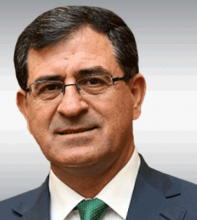You are here
The direction of economic thought in political partisan work
Mar 05,2023 - Last updated at Mar 05,2023
The direction of economic thought in political partisan work is influenced by a variety of factors, including ideological beliefs, economic interests, historical context and political incentives. Political parties are often associated with particular ideological beliefs about the role of government in the economy. For example, the Democratic Party in the United States generally advocates for a larger role for government in regulating the economy and providing social services, while the Republican Party favours a smaller role for government and more emphasis on individual responsibility and free markets.
Political parties may also be influenced by the economic interests of their constituents, donors and members. For example, a party that receives significant contributions from the energy industry may be less likely to support policies that would limit fossil fuel production or promote renewable energy.
The economic challenges and opportunities facing a country at a particular moment in time can also shape the direction of economic thought in political partisan work. For example, the Great Depression of the 1930s led to a shift in economic thinking towards greater government intervention in the economy, which was reflected in the policies of the New Deal.
Political parties may also be influenced by their desire to win elections and maintain power. This can lead to the adoption of economic policies that are popular with voters or that help to secure the support of key interest groups, even if they are not necessarily in line with the party's ideological beliefs.
Overall, the direction of economic thought in political partisan work is shaped by a complex interplay of factors, including ideology, economic interests, historical context and political incentives.
In political partisan work, being "left" or "right" in economic thinking refers to a spectrum of beliefs about the role of government in the economy and the distribution of wealth and resources. The "left" is generally associated with a belief in a more active role for government in regulating the economy and providing social services to ensure greater equality and opportunity for all citizens. Left-leaning economic policies may include progressive taxation, government spending on education and healthcare, and regulations to protect workers and the environment.
The "right" is generally associated with a belief in a smaller role for government in the economy and a greater emphasis on individual freedom and responsibility. Right-leaning economic policies may include lower taxes, reduced government spending, and de-regulation of markets to promote competition and efficiency.
However, it is important to note that the exact definition of "left" and "right" in economic thinking can vary depending on the country and political context. Additionally, many political parties and individuals hold a mix of left and right-leaning economic views, making it difficult to place them in a simple ideological category.
In partisan politics, there is also what is called "middle", which often refers to individuals or political parties that do not fully align with either the left or the right on economic or social issues. They are sometimes referred to as "centrists" or "moderates" and may take a more pragmatic and balanced approach to policy-making.
In terms of economic thinking, those in the middle may support a mix of government intervention and market-based solutions to address economic issues. They may also support policies that promote both economic growth and social equity, such as investments in education and training, infrastructure development, and targeted social welfare programmes.
Politically, those in the middle may be seen as less ideological and more willing to compromise with those on the opposite end of the spectrum to achieve common goals. This approach can sometimes lead to criticism from both the left and the right, who may view centrism as a lack of conviction or a failure to take a strong stance on important issues. Overall, the middle in partisan politics represents a diverse group of individuals and political parties who may take a more nuanced and balanced approach to policy-making than those on the far left or right.
In political partisan work, one could also be "free", which generally refers to a belief in individual freedom and autonomy, particularly in relation to government intervention and regulation. Those who prioritise freedom in political partisan work may advocate for a limited government that does not interfere with individual rights and liberties. This may include a smaller role for government in the economy, lower taxes and reduced regulation of markets and businesses.
However, the concept of freedom in political partisan work can be complex and contested. For example, some may argue that true freedom requires not just the absence of government intervention, but also the presence of certain social and economic conditions that enable individuals to fully exercise their rights and freedoms. This may include access to education, healthcare, and other social services that are often provided or regulated by the government.
Furthermore, the definition of freedom can vary depending on the political context and the specific issues at hand. For example, some may argue that restrictions on individual freedom are necessary to protect public health or the environment, while others may view such restrictions as a violation of individual rights. Overall, the concept of freedom in political partisan work reflects a complex balance between individual rights and the role of government in promoting the common good.














